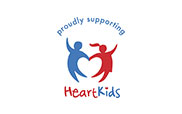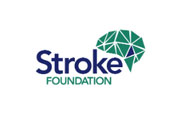
Exposure to COVID-19 may increase risk of
serious heart condition
? According to research, people who have had even mild cases of COVID-19 are at
increased risk of developing atrial fibrillation (AF).
? In 2021, there was a 4% increase in the prevalence of atrial fibrillation among
hospitalised COVID-19 patients in Australia.
? More than half a million Australians are affected by atrial fibrillation, a condition that is
responsible for 1-in-4 strokes and increases risk of heart failure and dementia.
? Alarmingly, up to 1-in-3 people living with the condition remain undiagnosed.
13 September 2022, Sydney, Australia:
This Atrial Fibrillation Awareness Week (September 19 – September 25), leading heart health charity
hearts4heart is urging Australians to get their heart checked, following reports that people who have
had COVID-19 are at greater risk of developing atrial fibrillation (AF).
Around half a million Australians currently live with atrial fibrillation,
1 and prevalence is expected to
double in the next decade.
8
The serious heart condition results in an irregular and often very rapid heart rhythm (arrhythmia)
that can lead to blood clots in the heart.
It is associated with a three-fold increase in the risk of heart failure2,4 and a five to seven-fold
increase in the risk of life-threatening stroke.
2,3
According to a new report published in Nature,
6 patients who had COVID-19 are 1.19 times more
likely to develop atrial fibrillation compared to patients who hadn?t had COVID-19. This was
consistent even among patients who were not hospitalised or had only a mild case of COVID-19.
6
The study highlights the adverse effects of COVID-19, warranting physicians to check for potential
cardiac arrhythmias among patients.
?Australians need to be heart smart now more than ever and have their finger on the pulse,? said
cardiologist and hearts4heart Medical Director Professor John Amerena.
?Don?t put your heart health on hold. Learn to recognise atrial fibrillation symptoms, test for an
irregular heartbeat, and speak with your GP about getting your heart checked. It may save your life,
Professor Amarena said.
Affecting one-in-twenty Australians aged 55 and over, atrial fibrillation is often considered a
condition that only occurs in older people, but it can affect people of all ages.
Highlighting the importance of early detection to reduce the risk of stroke and improve patient
outcomes, Atrial Fibrillation Awareness Week was first launched eight years ago by leading charity
hearts4heart to increase awareness about AF prevention, symptoms, diagnosis, and complications.
?Not everyone experiences symptoms, and the most common ones are often dismissed, either as
other health issues or just signs of getting older, but they shouldn?t be ignored,? said Hearts4heart
founder and CEO, Tanya Hall.
2 of 2
?If you?ve experienced a rapid heartbeat or palpitations, dizziness, unexplained tiredness, shortness
of breath, fainting, swelling of the ankles or chest pain, speak with your GP about getting your heart
checked,? Ms Hall said.
?Many people living with atrial fibrillation don?t experience symptoms, which means you could be
living with an underlying heart condition and not know it,? said Ms Hall, who was born with a hole in
her heart and had her first operation at nine years old.
For some children born with the condition, the hole can close on its own, but Ms Hall?s continued to
get bigger. As she approached her 20s and early 30s, things worsened. She had several arrhythmia
problems and was in and out of hospital for three years.
During that time, Ms Hall looked for information and support to help her manage her heart
conditions but soon realised there wasn?t anything available. Instead of giving up, she started her
own patient support organisation, hearts4heart.
?Initially, it was to share information that I had learned along the way but also to provide peer
support to patients. Today we?re a national organisation and have expanded to include New
Zealand.?
Hearts4Heart now provides peer support services and individual risk assessments (in partnership
with hospitals and pharmacies across Australia), in addition to raising awareness through national
campaigns and other events. Ms Hall and her team also advocate for better access to therapies and
are regularly involved in government health policy reviews.
To find out more about atrial fibrillation, visit hearts4heart.org.au.
References
1. Australian Institute of Health and Welfare. (2020). Atrial fibrillation in Australia. Retrieved from
https://www.aihw.gov.au/reports/heart-stroke-vascular-diseases/atrial-fibrillation-in-australia
2. Ball, J., Thompson, D. R., Ski, C. F., Carrington, M. J., et al.(2015). Estimating the current and future prevalence of atrial
fibrillation in the Australian adult population. Medical Journal of Australia, 202(1), 32?35.
https://doi.org/10.5694/mja14.00238
3. Kirchhof, P., Benussi, S., Kotecha, D., Ahlsson, A., et al. (2016). 2016 ESC Guidelines for the management of atrial
fibrillation developed in collaboration with EACTS. European Heart Journal, 37(38), 2893?2962.
https://doi.org/10.1093/eurheartj/ehw210
4. Gallagher, C., Hendriks, J. M., Giles, L., Karnon, J., Pham, C., et al. (2019). Increasing trends in hospitalisations due to
atrial fibrillation in Australia from 1993 to 2013. Heart (British Cardiac Society), 105(17), 1358?1363.
https://doi.org/10.1136/heartjnl-2018-314471
5. Bhatia, K. S., Gaal, W., Kritharides, L., et al. (2021). The incidence of cardiac complications in patients hospitalised with
COVID?19 in Australia: the AUS?COVID study. Medical Journal of Australia, 215(6), 279?279.
https://doi.org/10.5694/mja2.51225
6. Wollborn, J., Karamnov, S., Fields, K. G., et al. (2022). COVID-19 increases the risk for the onset of atrial fibrillation in
hospitalized patients. Scientific reports, 12(1), 12014. https://doi.org/10.1038/s41598-022-16113-6
7. Chen, M. Y., Xiao, F. P., Kuai, L., Zhou, et al (2021). Outcomes of atrial fibrillation in patients with COVID-19 pneumonia: A
systematic review and meta-analysis. The American journal of emergency medicine, 50, 661?669.
https://doi.org/10.1016/j.ajem.2021.09.050 https://doi.org/10.1016/j.ajem.2021.09.050
8. Xu J, Luc JG, Phan K3. Atrial fibrillation: review of current treatment strategies. J Thorac Dis 2016; 8: E886?900.
For further information or to arrange an interview with hearts4hear





